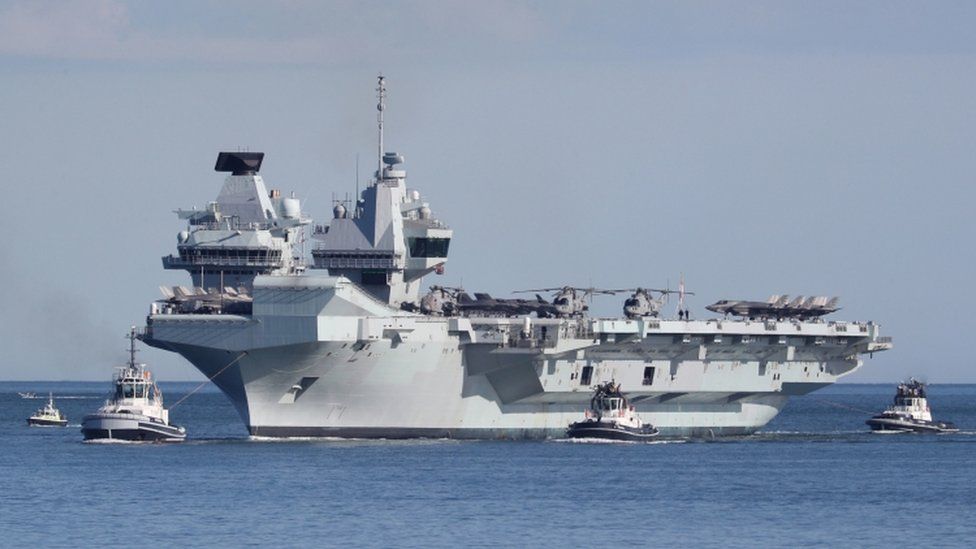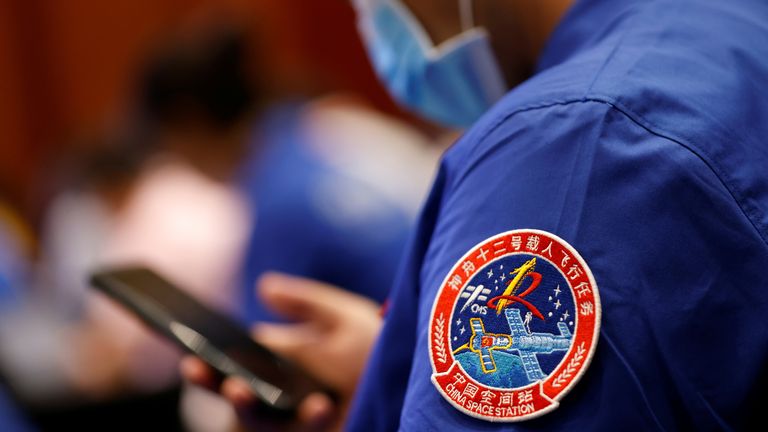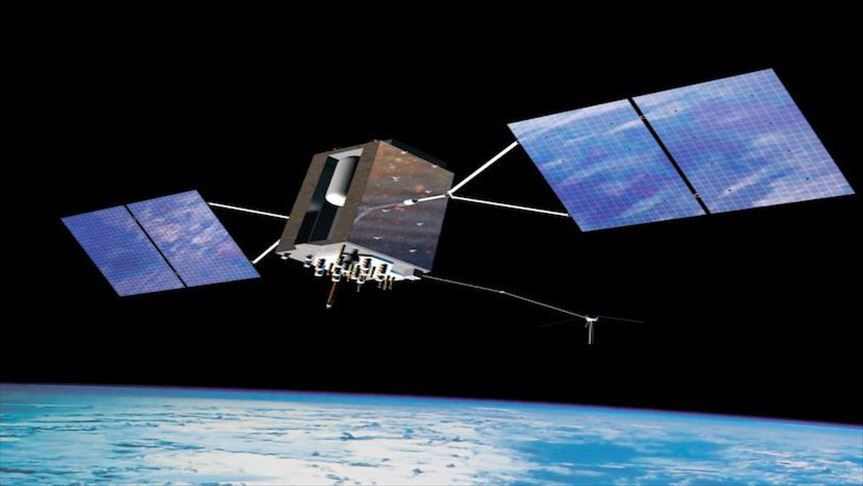 |
Getty Images
|
"[Russia
deployed a combination of satellites over the past year that] we would
describe as having the characteristic of a weapon and they practised a
manoeuvre that we would say could only have been done to deliberately
destroy another satellite."
"[China
continues to] develop anti-satellite technology and that's everything
from missiles that directly target satellites, to laser dazzle weapons,
to electronic jamming to physically ramming other satellites."
"[China practises against] their own redundant satellites, demonstrating the ability to do it."
"A
future conflict may not start in space but I'm in no doubt that it will
come very quickly to space, and it may well be won or lost in space."
"If we don't think, and prepare for that today then we won't be ready when the time comes."
Air Chief Marshal Sir Mike Wigston, United Kingdom
/arc-anglerfish-arc2-prod-mco.s3.amazonaws.com/public/AYC3FSJGXNGX3FVUZ5ZYPNJCLE.jpg) |
A United Launch Alliance Atlas V rocket
launches the AEHF-4 satellite for the U.S. Air Force from Cape Canaveral
Air Force Station in Florida in the early-morning hours.
(United Launch Alliance) |
Sounding
the alarm. That in the considered opinion of Great Britain's
top-echelon military elite, taking into consideration intelligence
gained and gathered and shared with allies, that Russia and China are
responsible through their activities, of a threat to militarize and
weaponize space. Not, by any means a new concept or concern, it has long
been debated, but now proof emerges that both countries are engaged in
preparations to do both, obviously considering it in their best
interests to engage in the unthinkable.
Now, chief of the British Royal Air Force claims that in the future conflicts would be "won or lost"
above the Earth's atmosphere. Taking Earthly disagreements and their
protagonists' ambitions to the heavens above. According to Air Chief Sir
Wigston, both Moscow and Beijing engage in "questionable" activity like flying satellites within "close proximity" to others'. More "dangerous activity" is also on the horizon, planning to destroy other nations' satellites.
Take,
for example, the Islamic Republic of Iran's deliberate stealth attacks
on ships belonging to other nations such as the UAE, the U.S. and Israel
in international waters that the Islamic Republic likes to consider its
unrecognized own. The military-grade speedboats operated by the IRGC
designed for hit-and-run and divers skilled in placing undervessel
limpet mines to explode a ship owned by its 'enemies' creating a
destabilizing situation of maritime uncertainty.
Now
translate that to deep, dark space and the general picture has clarity.
Who owns space? Is space to be considered the latest target for
conquest?
British military brass is unequivocal; they witness "reckless" behaviour from China and Russia acting as adversaries "several times a year".
Then it was over to General Sir Patrick Sanders, head of Strategic
Command, who stressed the disruptive implications implicit in a space
war for civilian populations and the military alike, that not only does
space provide "critical capabilities" to the military, but it also enables technology "we all recognize on our mobile phones to the technology that enables us to navigate the Carrier Strike Group around the globe".
 |
The HMS Queen Elizabeth is part of the UK Carrier Strike Group sailing through the South China Sea PA Media
|
That
would be the very Carrier Strike Group en route to Japan sailing
through the South China Sea which the CCP regards as its very own,
giving it the authority to warn Britain that it would do well not to
carry out any
"improper acts". The
Global Times
had its own stark warning, of the People's Liberation Army Navy in a
high state of combat readiness, as China monitors the eastward progress
of the Carrier Strike Group. Britain, seethes Beijing, is
"still living in its colonial days".
A
month earlier, it was Moscow warning Britain that it had no patience
for the games it was playing, sailing close to the Crimean coast. To
emphasize its ire, twenty Russian warplanes and two coastguard vessels
shadowed the British warship. A Russian patrol ship fired warning shots
while a jet dropped bombs in front of the steaming HMS Defender sailing
12 miles off the Crimean (Ukrainian) coast, according to Moscow's
defence ministry.
The two British chiefs spoke at the launch of
Space Command at RAF High Wycombe, a newly-initiated joint force to be
staffed by the Royal Air Force, the British Army, the Royal Navy and the
civil service, which at full operating capacity will provide command
and control of space capabilities, including the Space Operations
Cnetre, RAF Fyligdales in North Yorkshire and SKY-NET satellites for
military communications.
 |
| Beijing destroyed a satellite with an anti-satellite weapon, creating debris that is still circulating Earth. File pic |
The
new unit plans to focus on sharing information on developing threats to
include the use of ground-based and space-based radars; information
gathering "from other like-minded allies". Its aim, to build a network of satellites to "move data around seamlessly" and garner "intelligence, surveillance and reconnaissance from space", according to Sir Patrick.
"Those are the sort of capability areas that we're looking at. The
starting point is to understand what's up there and to get the basics
right."
"The Russian satellite system used to conduct this on-orbit
weapons test is the same satellite system that we raised concerns about
earlier this year, when Russia manoeuvred near a U.S. government
satellite."
"This is further evidence of
Russia's continuing efforts to develop and test space-based systems, and
consistent with the Kremlin's published military doctrine to employ
weapons that hold U.S. and allied space assets at risk."
Gen. John W. Raymond, commander, Space Command, head, U.S. Space Force
The Russian Defence Ministry stated the disputed event involved "a small
space vehicle" that "inspected one of the national satellites from a
close distance using special equipment", the inspection
"provided valuable information about the object that was inspected,
which was transmitted to the ground-based control facilities."

/arc-anglerfish-arc2-prod-mco.s3.amazonaws.com/public/AYC3FSJGXNGX3FVUZ5ZYPNJCLE.jpg)




<< Home